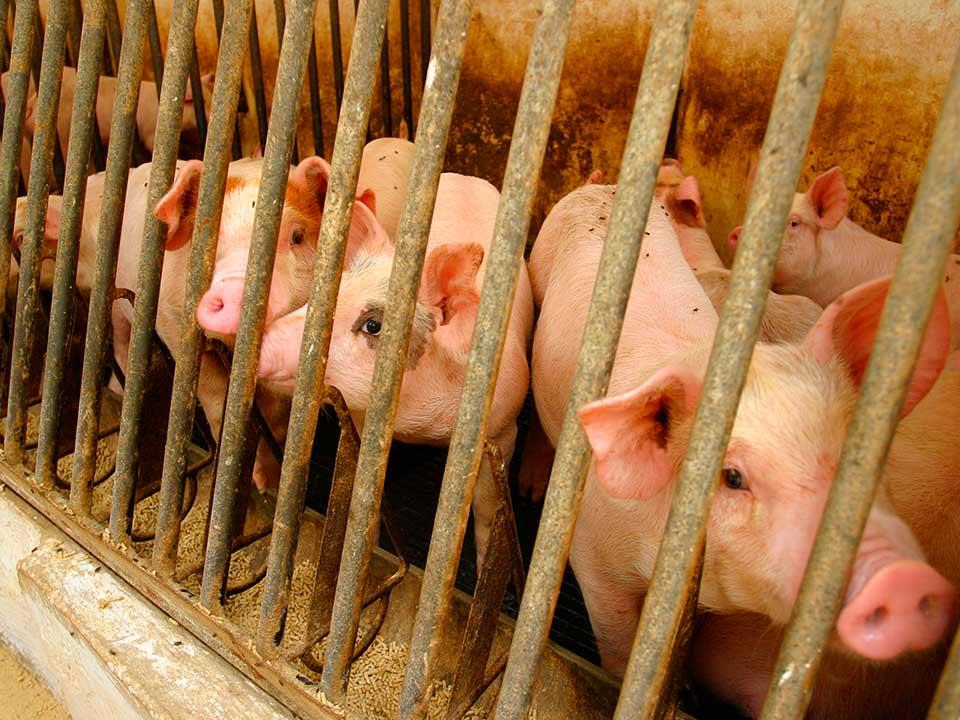DA says ASF ‘waning,’ to implement P600-M swine repopulation

The Department of Agriculture (DA) said Tuesday that the African swine fever (ASF) incidence is already at its lowest level since the first outbreak in August 2020.
"We are heartened that the ASF incidence is waning, which as of March 26, 2021, has registered 253 cases, versus 358 cases in January 2021, 330 cases in February 2021, and the highest level at 1,773 cases in August 2020," Agriculture Secretary William Dar said in a statement.
Dar said the “favorable” development was relayed by Bureau of Animal Industry (BAI) director Reildrin Morales during a recent meeting with DA regional directors, and director Jocelyn Badiola of the DA-Agricultural Credit and Policy Council (ACPC) and president Jovy Bernabe of the DA-Philippine Crop Insurance Corporation (PCIC).
With this, the DA is set to implement its P600-million swine repopulation program, which will focus initially on previously affected areas that are no longer under quarantine and now classified as “pink” and “yellow” zones.
"This piece of good news boosts the Duterte administration's swine repopulation program -- or the Integrated National Swine Production Initiatives for Recovery and Expansion or INSPIRE -- that will be implemented in ASF 'pink' and 'yellow' zones, and more extensively in ASF 'green' zones,” Dar said.
As per the ASF color coding scheme, "pink" zones serve as buffer, where ASF is not present but adjacent to an infected zone.
It may also be an area previously infected but the ASF virus has not been detected for at least 90 days, and thus has recovered from infected status.
Other areas where the repopulation program will be implemented are the "yellow" or surveillance zones.
The program will also be rolled out in “light green" and "dark green" zones, which are free from ASF.
"We will implement INSPIRE through the 'sentinel' approach initially in the first eight regions affected by ASF, benefiting 8,000 backyard raisers, who will be grouped into 500 clusters," the Agriculture chief said, noting that the eight regions are Regions 1, 2, 3, 4A, 5, 11, 12 and Cordillera.
The sentinel approach is the limited placement of pigs to ascertain if there is still ASF virus present in a test area.
Agriculture Undersecretary for livestock William Medrano, for his part, said the project beneficiaries will each receive three to five "sentinel" piglets — including feeds, veterinary drugs, biologics and anti-viral agents — during the six-month fattening period.
The sentinel component entails an initial budget of P400 million under the INSPIRE program.
Another P200 million is allocated for the INSPIRE multiplier breeder component to ensure continuous source of piglets for the subsequent expansion of the swine repopulation program, Medrano said.
The DA through its International Training Center on Pig Husbandry (ITCPH) is also establishing swine breeder multiplier farms, initially in eight provinces, namely Ilocos Norte, Bataan, Nueva Ecija, Mindoro, Sorsogon, Southern Leyte, Bohol and Bukidnon.
Further, the DA-ACPC is extending a P500-million credit program for backyard raisers in "green zones" to expand their operations.
Likewise, the DA through the PCIC will provide free insurance premium to backyard raisers listed under the Registry System for Basic Sectors in Agriculture (RSBSA), and subsidized premium for commercial raisers.
Should their fatteners die due to ASF, they will be indemnified at P10,000 per head.—LDF, GMA News



